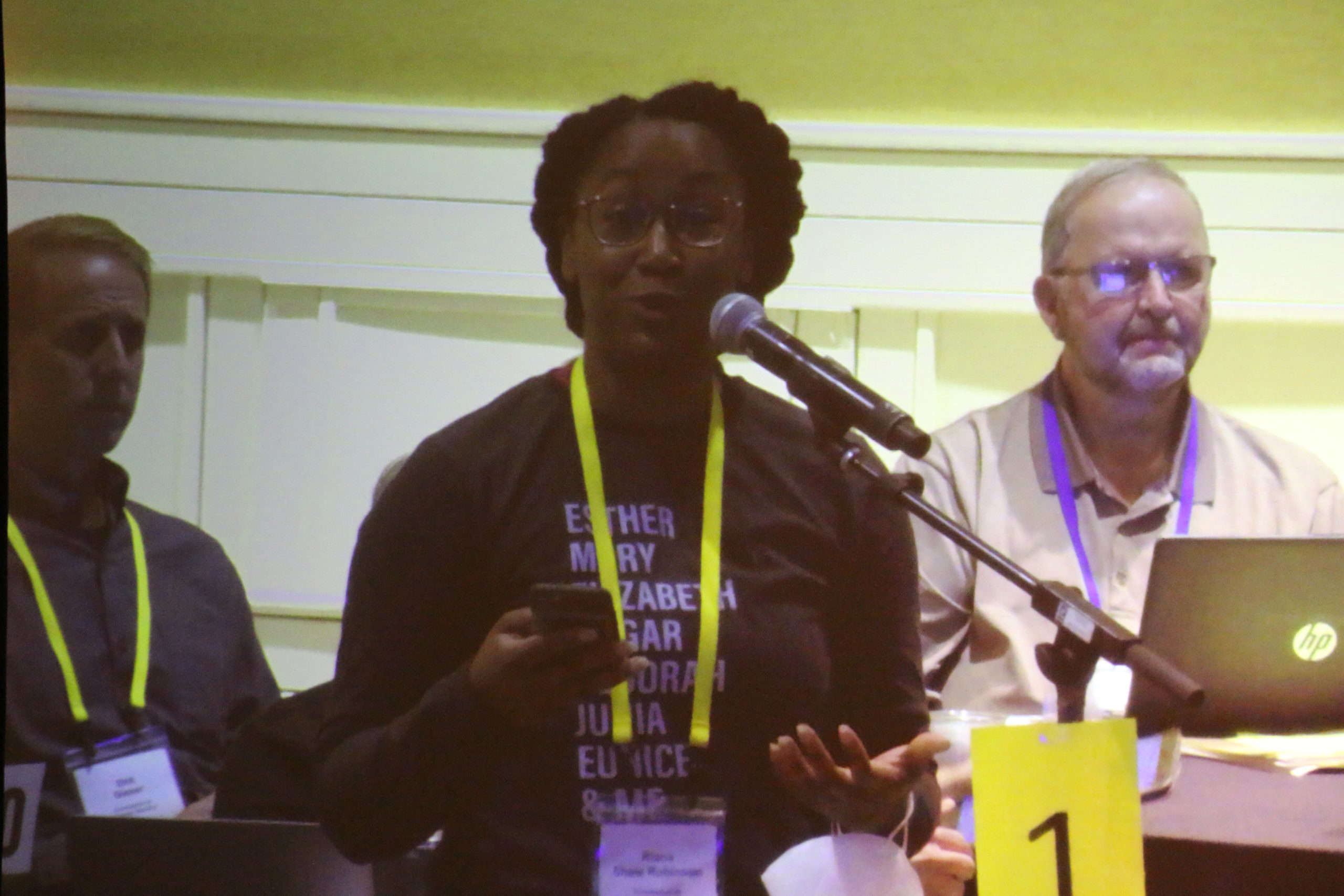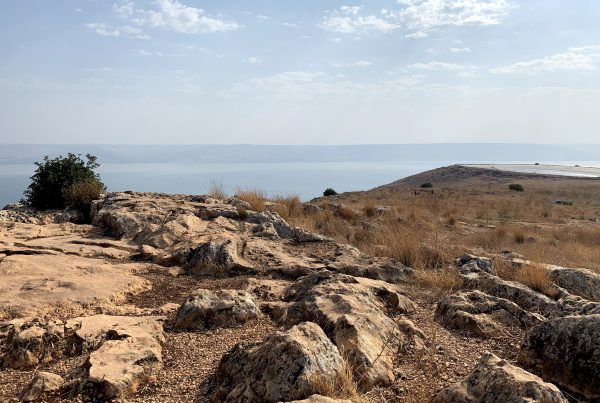After the 2020 global reckoning with racism, General Synod 2021 approved five anti-racism recommendations on Saturday morning. These included a recommendation urging RCA assemblies to hold an annual one-day event dedicated to racism. For accountability, another recommendation, which came as a motion from the floor, adds a question to the Consistorial Report Form (CRF) about anti-racism training.
Four of the recommendations were brought to the General Synod Council (GSC), who presented them to the synod, by the African American Black Council (AABC). (Since the councils report to the GSC rather than the General Synod itself, recommendations come through GSC.) The recommendations had initially been presented to GSC in 2017 but had not come to General Synod and were resubmitted to GSC this year, AABC moderator Sharon Atkins explained in her video report.
The first recommendation, “To urge RCA assemblies to provide an annual one-day event dedicated to antiracism,” sparked heartfelt discussion, kicked off by Riana Shaw Robinson, a delegate from the Commission on Race and Ethnicity (CORE).
“I can just speak from my personal experience as a young black woman, that I have not always felt welcome in the RCA,” she said. “It is hard to walk into a space where you are the ‘only.’ Some of the curriculum in the MFCA classes definitely didn’t highlight the voices and brilliance of theologians that are women or people of color, and not naming candidly some of the painful roots of this denomination that were grounded in slavery and exclusion.
“While I understand that these things were not meant to explicitly tell me that I wasn’t welcome, the exclusions are constant reminders that the RCA was not created with me in mind. I’m so incredibly grateful to those that have worked hard to welcome, to listen to my experience, and seek to support me on this journey.
“I’m grateful to the general secretary for naming that the future of the RCA will include more people of color. …
“Welcome with the expectation that includes assimilation into the dominant culture is different from welcome that invites people to bring the fullness of the gifts of God in their God-given ethnic and racial identities, as a gift to the denomination to better witness to God’s beautiful diversity.”
Numerous delegates also spoke in favor of the recommendation, including Cor Kors, recently retired director of the Ministerial Formation Certification Agency, which Shaw Robinson referenced in her comments. “I want to offer an apology; I heard Riana mention her MFCA classes, and we have failed,” Kors said. “Anti-racism training is very important. I do think it is at the heart of the gospel. In the early years, I did listen to the stories of people like Beryl Banks and Jason Perry. And [in] the latter years, I heard Riana tell her stories. We have not done anti-racism training. We did not include them in our history, and I give a sincere apology for what we have not done, and I fully endorse this kind of anti-racism training.”
The synod voted overwhelmingly in favor of the recommendation, urging RCA assemblies to provide an annual one-day event dedicated to anti-racism.
Three additional recommendations related to anti-racism passed quickly, with little discussion:
- To urge RCA assemblies and institutions to provide regular anti-racism training for students, faculty, and staff, to integrate racially and culturally diverse voices in the curriculum, and to revisit hiring policies to ensure that faculty and staff are racially diverse.
- To urge General Synod delegates to consider African Americans and people of color for General Synod officer positions.
- To commend the African American Black Council for its historical and ongoing commitment to holding up anti-racism to the church and holding the RCA accountable for deficiencies.
Following those votes, delegate Bob Hoffman said, “I encourage all of us as delegates to go back to our sending institution and work hard to implement these. I also challenge us as delegates to not think that we don’t need to do anything more because we have taken this action.”
The RCA’s racial/ethnic councils are the Council for Hispanic Ministries, the Council for Pacific and Asian American Ministries, and the African American Black Council. These racial/ethnic councils “express the collective vision and voice of racial and ethnic congregants and congregations as they develop ministries and advocate for policies of racial and ethnic inclusion, economic, social, and racial justice, both within the Reformed Church in America and ecumenically,” as outlined in the Book of Church Order.
Delegate Sophie Mathonnet-Vanderwell made a motion from the floor to add accountability, calling for the addition of a question about anti-racism training in the annual Consistorial Report Form. The motion was adopted.
The synod then heard from the Commission on Race and Ethnicity. Commission moderator Kelvin Spooner commended the establishment of the new Office of Advocacy and Race Relations, but registered concern about insufficient staff time for the office. Delegate Rick DeBruyne then brought a motion from the floor to increase the hours of the supervisor of advocacy and race relations to full time. Peter Watts, who currently serves in that role, works 30 hours a week. The recommendation was debated extensively as delegates considered the priority of anti-racism work and the reality of limited financial resources. The recommendation was defeated by a margin of three votes.
“The Commission on Race and Ethnicity prays that it can and will be a safe space, a safe space, for anyone that feels oppressed, discriminated against, wronged, or mistreated by a brother or sister in Christ because of race, ethnicity, or nationality,” said Spooner. “CORE is open and desires to hear your story, and will address it accordingly.”





